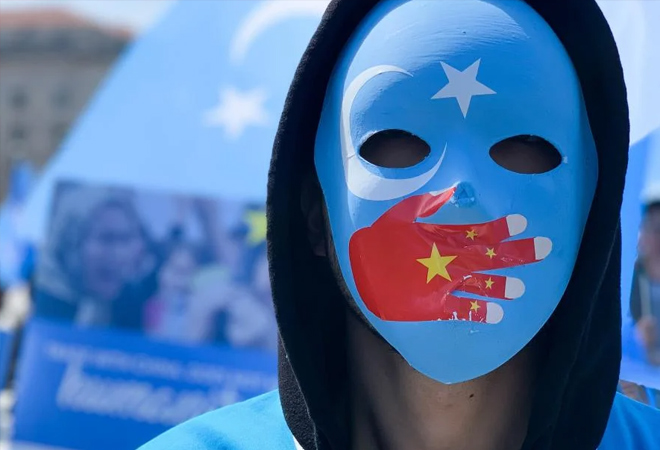Last year, on August 31, 2022, the United Nations Office of the High Commissioner for Human Rights (OHCHR) brought out the much delayed report on Xinjiang, in which it expressed concern over the worsening human rights conditions in China. On the one-year anniversary of the UN report, Amnesty International reminded the world about the need to hold China to account for crimes against humanity amid a “woefully inadequate” response by the international community.
The OHCHR report on the Human Rights Situation in the Xinjiang Uyghur Autonomous Region, mentioned grave human rights violation by the Chinese government against Uyghurs and other Muslim minorities.
Amnesty International’s Deputy Regional Director for China, Sarah Brooks said, “The one-year anniversary of the OHCHR report must be a call to action for the international community. The need for states, through the Human Rights Council, to establish an independent international mechanism to investigate crimes under international law and other serious human rights violations in Xinjiang is as urgent as ever. Families of those who have been arbitrarily detained, forcibly disappeared or mistreated, want and deserve answers and accountability, not delays and compromises.”
Since 2017, there has been extensive documentation, including by the UN Special Procedures of China’s crackdown against Uyghurs, Kazakhs and other predominantly Muslim ethnic minorities in Xinjiang, carried out under the guise of fighting terrorism. In 2021, a comprehensive report by Amnesty International demonstrated that the systematic state-organized mass imprisonment, torture and persecution perpetrated by Chinese authorities amounted to crimes against humanity. As the Universal Declaration of Human Rights states, all people possess human rights and fundamental freedoms that governments must protect. The government of the People’s Republic of China (PRC), guided by a dictatorial ideology under the absolute rule of the Chinese Communist Party (CCP), deprives citizens of their rights and systematically curtails freedom. People in China cannot practice the religion or belief of their choice. The Chinese Communist Party has targeted campaign against Uyghur women, men, and children, and members of other Turkic Muslim minority groups in Xinjiang, China. Documented human rights abuses include coercive population control methods, forced labour, arbitrary detention in internment camps, torture, physical and sexual abuse, mass surveillance, family separation, and repression of cultural and religious expression. In recent years, such human rights abuses have increased through government policies under the pretext and justification of fighting the “three evils” of “ethnic separatism, religious extremism, and violent terrorism.” Human rights organisations, journalists, think tanks, and survivors of the Xinjiang camps themselves have provided ample information substantiating these abuses. Chinese Communist Party has detained more than one million Uyghurs, ethnic Kazakhs, ethnic Kyrgyz, and members of other Muslim minority groups in internment camps. There have been complaints about destruction and closure of mosques and other religious sites, prevention of youths from participating in religious activities, forced political indoctrination or “re-education”.
Other abuses by Chinese authorities include coercive population control through forced abortion, forced sterilization, and involuntary implantation of birth control, forced labor in facilities nearby or affiliated with the internment camps. However, Chinese authorities have repeatedly dismissed accusations of human rights violations in the region. India has remained silent o the UN OHCHR Report on ‘Serious Maltreatment of Minorities’ in China’s Xinjiang. However, in Sept, 2022 MEA spokesperson Arindam Bagchi said, “Our understanding is that the report is about the serious maltreatment of minorities in Xinjiang. But this is a UNHRC report, so for the moment, let the UN comment on it.”

